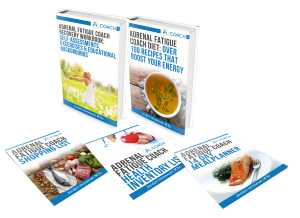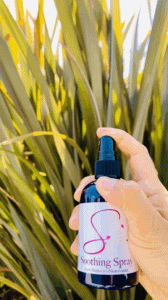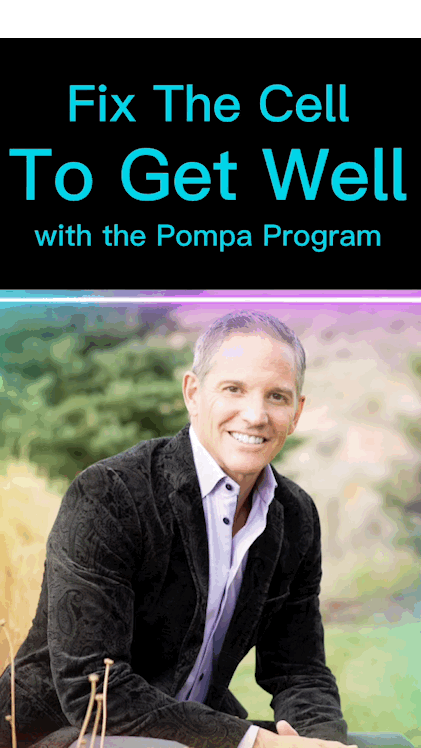May 15th, 2018 •
Comments Off on Less is More: How Minimalism Can Help Reduce Stress
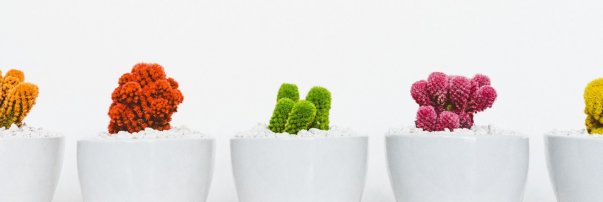
For some, minimalism evokes thoughts of selling off all your worldly goods and moving to live in a log cabin in the middle of nowhere. For others, they imagine a twenty-something hipster living in a micro apartment with bare walls, empty cupboards and little in the way of home comforts.
But while minimalism is about removing unnecessary possessions from your life and focusing on “experiences rather than things,” the reality is that you definitely don’t have to be so extreme to reap the many rewards of minimalist living.
In fact, there are many different types of minimalism – and it’s really up to you to decide how far you want to take things. Either way, this way of life is well worth considering if you’re looking to reduce stress and anxiety.
How Minimalism Can Help Reduce Stress
Many people fall into the trap of believing that material possessions will bring them joy and happiness. Rather than making us happy and fulfilled, these possessions actually tend to do just the opposite. They just accumulate over time and actually serve to weigh us down – whether that’s financially or emotionally.
By contrast, minimalists understand the value of letting go of “stuff” that no longer serves them or adds any sort of value to their life, and they are mindful of living in the present moment and appreciating the little things that make life worth living. In short, it’s about understanding that there is more to life than possessions, appreciating what you already have and spending more time focusing on the important things.
Some of the main benefits of minimalism include less stress and anxiety, more time to spend on the things you enjoy, and a greater sense of purpose. Read on to discover why living a minimalist life just might be the right choice for you…
1. Less mess = less stress
Ever tried to knuckle down to work in a room filled full of junk? Not only does clutter make it more difficult to concentrate and focus, it can also cause huge amounts of stress and anxiety.
Whichever way you look at it, mess usually equals stress.
De-cluttering your home helps you to create a “tidier mind” – and it can also save you time (and stress!) by making it easier to find the things you’re looking for. Just imagine how much less stressful life would be if you didn’t have to run around each morning trying to locate missing shoes, jackets and schoolbags!
2. More money – and time
Will that expensive new pair of shoes really increase your happiness? While it’s true that buying “stuff” often provides an instant pleasure boost, the reality is that the novelty usually soon wears off – and especially so if it’s something you didn’t really need in the first place. How many times have you bought something and then forgot all about it after two weeks? Exactly.
By stopping all those unnecessary purchases, you’ll save a lot of money each month and have more cash to put into savings – or why not use it to pay off existing debts and reduce your financial burden? It is certainly comforting to know that you have a little tucked away to cover those unexpected costs that inevitably crop up in life every now and again.
What’s more, spending less means that you won’t have to earn so much just to cover it all. It could even allow you to cut down on your work hours and spend more time with your family.
3. More time to focus on the important things
The truth is that having a lot of things makes it much harder to focus on what’s truly important in life. All too often we put too much time and energy into unnecessary things – and when you’re flitting between stuff it also makes it difficult to focus properly on any of them.
When you reduce the number of material things you own and cut out those commitments that aren’t in line with your values, you’ll be able to direct more time and energy towards the things that truly matter and actually enhance your life. In many ways, this is the secret to a happier life.
4. Greater time for self-discovery
Minimalism goes far beyond simply accumulating less material items and reducing your expenditure. Rather, it is about all round self-improvement and living a more fulfilling life – and a big part of achieving that is self-discovery.
If you want to reduce your stress and anxiety, it is essential to find the root cause of your problems. By having less things to distract you, you’ll have more time to discover and understand why you behave (and feel) in the way you do.
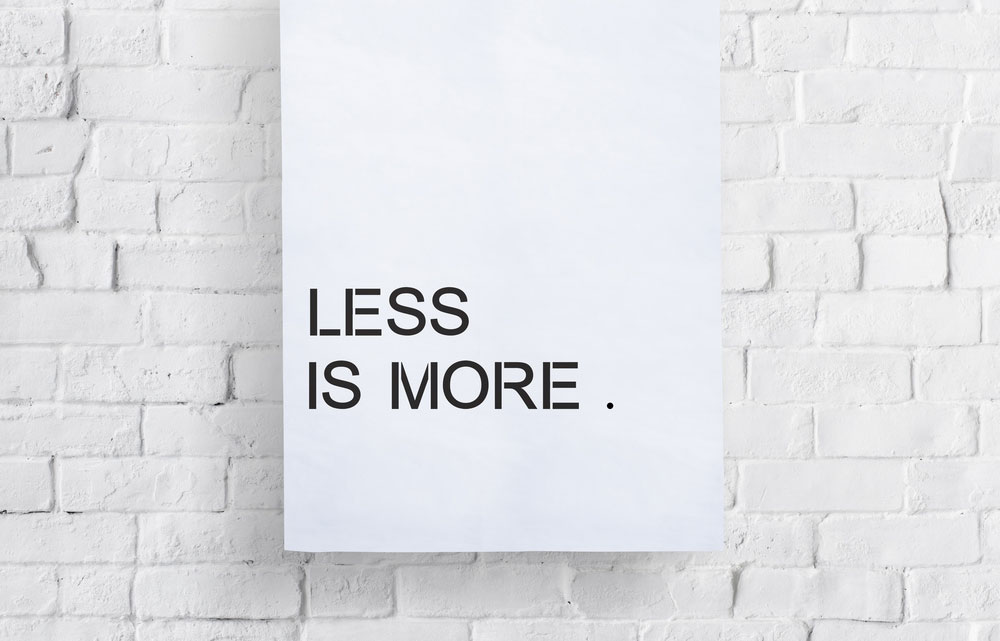
5. Better self-control
For many of us, impulsive purchasing is a lifelong habit – and it’s one that can be very difficult to break. Whether it’s peer pressure or the constant bombardment of advertisements for the latest and greatest products, we are basically all taught from a very early age that we need to keep purchasing the material things in life in order to feel “happy” or “worthy.”
By contrast, being a minimalist means that you learn to only buy the things you really need. This requires quite a lot of self-control – but it’s certainly worth it, and it’s something that definitely gets easier with time and practice.
Try making a shopping list of the items you need and make it your goal to ONLY purchase those things. Once you’ve seen how it reduces stress and increases your contentment and enjoyment of life, you’ll never want to go back to your old ways.
6. It makes you realize less is more
When you buy lots of stuff, you tend to stop appreciating the things you already have. As humans, we often feel “incomplete” and always feel the need go out and buy the next thing.
On the other hand, minimalists know that they already have everything they need and understand that buying more possessions will not enhance their happiness. By getting rid of unnecessary things in your life, it teaches you to realize that “less is more” and makes you appreciate the things you already have.
7. It forces you to live in the present
One of the biggest keys to enjoying life and reducing stress is learning to live in the present moment. Many people spend a lot of time dwelling on the past and worrying about the future, yet they fail to focus on enjoying the here and now.
By reducing time commitments and getting rid of material clutter that may remind you of the past, it frees you to become more focused on the present moment. You can better focus your energy on the things that really matter and learn to let go of the things that don’t, which in turn makes you feel more calm and adds purpose to your life. By living in the present, you can live a more enjoyable life and create a better future for you and your loved ones.
8. It teaches you to focus on one thing at a time
If there’s one thing in life that guarantees stress, it’s trying to juggle multiple things all at the same time. But while multitasking might seem like a good idea to get everything done more quickly, the reality is it’s really bad for your mental health – and it also results in poor quality work.
Ultimately, the best plan is usually to focus on doing one thing at a time – and minimalism teaches you to do just that. By freeing up your time and removing distractions from your life, you’ll feel less overwhelmed and be able to more easily focus on the job in hand. As well as making you feel calmer and less stressed, this also means that you’ll probably do a better job of whatever it is you are tackling.
So, there you have it. If you’re looking to feel more content, less stressed and more fulfilled, becoming a minimalist really is one of the best things you can do.




